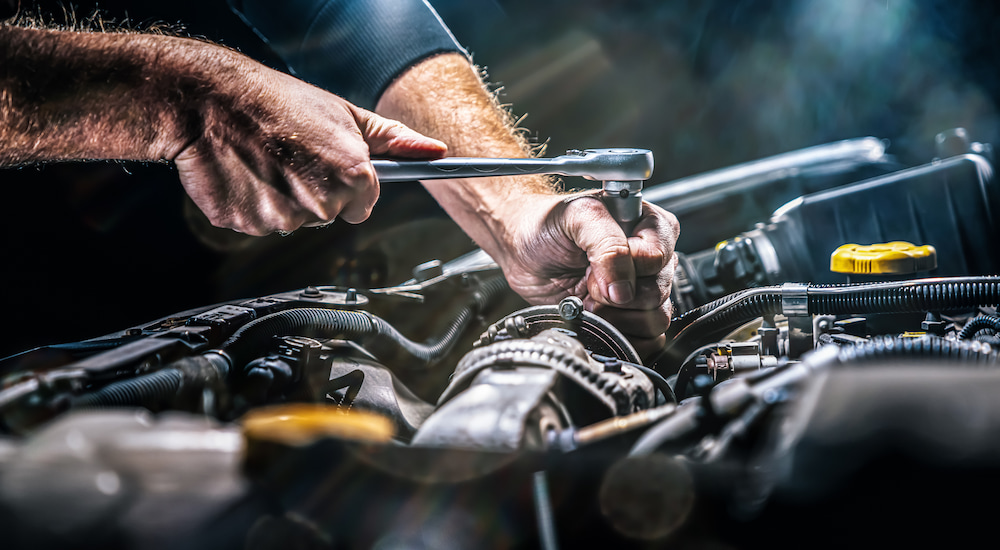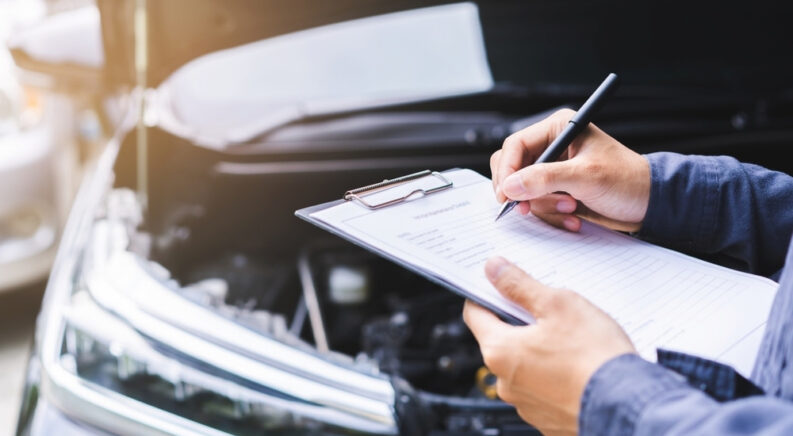It can be quite satisfying to perform your own auto maintenance. You can save some money in the process, too. But can maintaining your car yourself instead of taking it to the shop affect your warranty coverage? That’s a great question with a relatively layered answer because, like so many other things in life, it’s a bit more complicated than it might seem. It ultimately depends on what kind of warranty coverage you have, the kind of DIY work you’re talking about, and what happened that you need warranty service for. Let’s examine some major considerations to keep in mind about how DIY can impact your car’s warranty, what kinds of things can void your warranty coverage, and more.
What Is a Warranty and What’s Covered?
Although there is a lot of legal language about how warranties work and what they are, a warranty is essentially a way that a manufacturer or other business shows how they stand behind their work. It is a commitment they make to fix issues due to mistakes or failures they’ve made. It’s not a guarantee to replace parts or the entire vehicle regardless of what happens, nor is it absolute and total coverage with no exceptions. A warranty specifically says that a car company stands behind the work they did in making a vehicle for a set duration, but that’s it.
Coverage depends entirely on what’s indicated explicitly by the warranty you’re looking at. Federal law sets certain standards for how warranties work, specifically the Magnuson-Moss Warranty Act of 1975, but it doesn’t require warranties to be offered. A car company could sell a car with zero warranty coverage if they wanted to. It’s not legally required. However, every major manufacturer provides new vehicle warranty coverage, typically several different types of coverage, including a bumper-to-bumper or total-vehicle warranty, along with a powertrain warranty that covers the engine, transmission, and related parts.
The key thing to remember is that warranty coverage is only for manufacturing issues. Chevy’s current bumper-to-bumper limited warranty, for example, specifically says it “Covers the entire vehicle for repairs, including parts and labor, to correct any defect in materials or workmanship.” That’s it. If something breaks or wears out too quickly because it was made or installed improperly by the manufacturer, it’s covered. But if parts wear out naturally or because you hit a curb, the warranty doesn’t cover that.
What Is Voiding a Warranty?
When a warranty is voided, the manufacturer has decided it is no longer valid, and they no longer provide coverage or compensation for issues with the vehicle. This is pretty extreme and doesn’t happen often, but it’s a major concern and worth considering. In some instances, the warranty won’t be voided in its entirety, but the manufacturer might decide something specific isn’t covered by the warranty, but the rest of the warranty remains valid for the rest of its duration. This is more common when looking at service or repairs for a vehicle where nothing drastic happened, but the maker won’t cover a specific thing.
For example, let’s say you installed a nitrous oxide system on your vehicle, took it drag racing, and blew the engine. No manufacturer would cover your blown engine under warranty, because they did not design it to drag race with a nitrous oxide system. However, if your infotainment system later fails on the same vehicle, that should still be covered in full. There is no way a blown engine could break the infotainment system, so that would still be a manufacturing defect that would be covered.

Can DIY Service Void Your Warranty?
In general, here in the US, absolutely not. This is addressed in federal law, specifically the Magnuson-Moss Warranty Act of 1975. Warranty coverage cannot forbid you from performing service on your own vehicle. Similarly, manufacturers can’t require that you only use parts they sell, so even if you go with a third-party or aftermarket part for your vehicle, that doesn’t inherently impact your warranty coverage on a vehicle.
That being said, there are a couple of things to consider. First, vehicle warranty coverage typically includes a provision that won’t cover an issue or damage caused by “insufficient maintenance.” This essentially refers to the service schedule provided with your vehicle, so if you’re going to work on your own car, you should follow this schedule. It’s a good idea to keep a service log or calendar showing when you performed work on your ride. Keeping receipts for parts that you used can help you back this up. If push comes to shove and a manufacturer tries to refuse warranty service because you didn’t properly care for your vehicle, this evidence can help you prove you maintained it correctly.
Second, while a car company can’t require that you use their parts, using the wrong parts can affect your warranty coverage. If you go with a third-party part and it damages something on your vehicle, they can deny warranty coverage on that damage. This is the risk you take when you use something other than original equipment manufacturer (OEM) parts approved by the manufacturer, so keep that in mind.
What Can Void Warranty Coverage?
In general, the warranty coverage for your vehicle will specifically indicate what kinds of things aren’t covered or what can potentially void your warranty coverage. Certain common issues that you should have in mind include:
- Insufficient Maintenance: If you fail to follow your vehicle’s service schedule and this causes an issue, your warranty won’t cover it. You can do the service work yourself, but use a journal to keep track of specific dates.
- Damaging Modifications: You may make aftermarket modifications to your vehicle and keep your warranty coverage. But if that lift kit you installed on your truck damaged its suspension, then the manufacturer isn’t going to fix or replace the suspension as a warranty service.
- Vehicle Misuse: This one’s open to interpretation and the most likely exception a company will try to use to avoid warranty service. Misuse can include taking your sedan off-road, using your full-size SUV on a race track, or even using your vehicle as part of your job and putting excessive miles on it.
- Damage from Accidents: Warranty coverage is only for defects and issues that arise from their parts and labor. The warranty won’t cover those repairs unless you can prove that a defective part caused a crash. That’s what auto insurance is for.
Again, you should look at your vehicle’s warranty coverage documentation to see what specific things aren’t covered or can void your warranty. Legally, they have to provide you with this information. This is also why it’s a good idea to read the details of a warranty or extended warranty carefully before signing anything.

Important Things to Remember with DIY Maintenance
You may work on your vehicle, but you need to be smart and careful about it to protect your warranty coverage. Follow the service schedule for your vehicle and keep a log to track when work is done. Save receipts for parts you buy since this proves not only what parts you used, such as the type of motor oil, but also when you bought them, giving you concrete evidence for the dates in your service log. Personally, I prefer to spend a little more on OEM parts to ensure I have the right components for my vehicle, but that’s up to you. Just make sure whatever you buy is from a reputable brand.
Finally, make sure that any work you plan on doing on your vehicle is within your skill set. If you’re just getting started with vehicle maintenance, stick to easier jobs like changing your oil, checking your battery and cleaning its terminals, and regularly checking your tires. Move up to tasks like rotating or replacing your tires as you get more experience, along with replacing other fluids in your vehicle. Bigger tasks like checking and adjusting your alignment or replacing your brakes are best when you have lots of experience. If you make mistakes, damage something, or incorrectly install a replacement part, then you will be denied warranty service to fix it. If your vehicle needs work that you’re not comfortable doing yet, there’s no shame in letting the professionals handle it.

